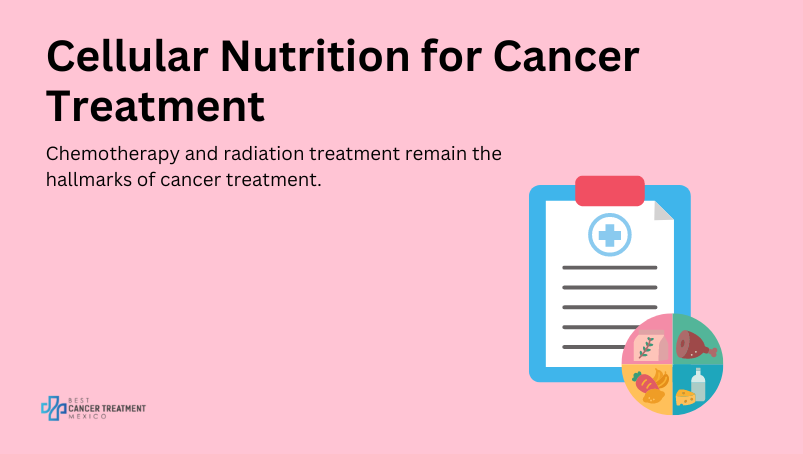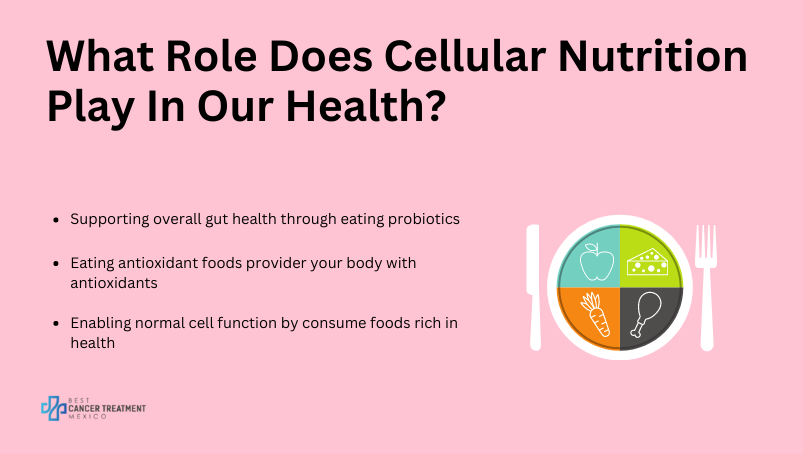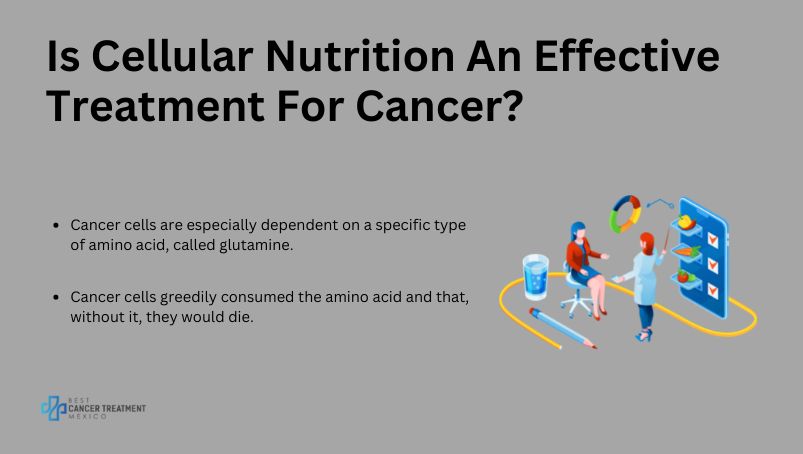
Cancer treatment options have expanded exponentially in recent decades. For quite some time, options like chemotherapy and radiation treatment were the only options available to people. Still today, chemotherapy and radiation treatment remain the hallmarks of cancer treatment, despite many advances in new options, such as immunotherapies.
Despite their widespread use, radiation and chemotherapy treatments come with their own set of complications and challenges. Despite offer efficacy to cancer patients, they cause a range of unpleasant and hard to manage side effects that can make cancer treatment almost intolerable. On top of that, some people become resistant to treatments like chemotherapy.
That’s why new treatments are needed. But where should people look to find new options for cancer treatment? With all the cytotoxic options out there, people are looking for options that could support more natural ways of fighting cancer, or even preventing it altogether. Nutrition, or cellular nutrition, in particular, could be a way to help fight cancer. Keep reading to learn more about this treatment option.
What is cellular nutrition?
Cellular nutrition refers to the process of using what we eat to fuel our cells. When we think about nutrition, we may not think about eating healthy to support something as small as our cells. But cells use all the nutrients we consume to perform vital functions, so when we eat, we are really feeding our cells.
What role does cellular nutrition play in our health?

Because the cells are the building blocks of our entire body, cellular nutrition plays a vital role in helping support our overall health. This includes focusing on nutrition that feeds cells and nutrition that creates an environment that is supportive of cell health and protects them from damage.
A few ways that nutrition can support overall cellular health include the following:
- Supporting overall gut health through eating probiotics or avoiding toxins in certain foods can support the function of the mitochondria, the powerhouse of the cell.
- Eating antioxidant rich foods (such as peppers, broccoli, and blueberries) can provider your body with antioxidants to limit free radicals and protect cells from damage.
- Enabling normal cell function by consume foods rich in health mono and polyunsaturated fats, such as nuts, fish, and olive oil.
How does cellular nutrition help with cancer?
Using cellular nutrition to fight cancer focuses on what cells need and don’t need, and using those principles to target cancer cells. Here’s how it works:
Regular, healthy cells consume nutrients to perform vital functions in the body. Cancer cells, because of mutations in their DNA, grow out of control. They are aided by consuming more nutrients in the surrounding environment than they really need, helping them grow quickly. For example, sugar is commonly referred to as a compound that can exacerbate cancer by giving cancer cells the fuel they need to grow, or at least increasing the risk of cancer to begin with.
Is cellular nutrition an effective treatment for cancer?

Research is ongoing to determine how effective nutritional manipulation and guidance can be in helping prevent and treat cancer altogether. Here are some key research findings so far:
- Certain amino acids may be a favorite of cancer cells. Some research shows that cancer cells are especially dependent on a specific type of amino acid, called glutamine. This was first discovered almost 70 years ago, when a doctor in the U.S. found that cancer cells greedily consumed the amino acid and that, without it, they would die. Some researchers have developed ways to block cancer cells from getting glutamine.
One particular challenge cellular nutrition faces as a cancer treatment involves cancers ability to adapt remarkably well in hostile environments. Even when nutrients are scarce, cancer cells manage to get what they need, making cellular nutrition therapy challenging. For example, even starving cells of glutamine could enable them to survive on other nutrients.
Is cellular nutrition a safe treatment for cancer?
Cellular nutrition is safe so long as you are following safe and effective dietary guidelines (e.g., avoiding too much processed or sugary food).
With any type of cancer treatment, it’s important to make sure you fully understand the available treatment options and choose options that work for you. This should include talking to your doctor before starting any cancer treatment. They can help you decide which treatment options are right for you.
